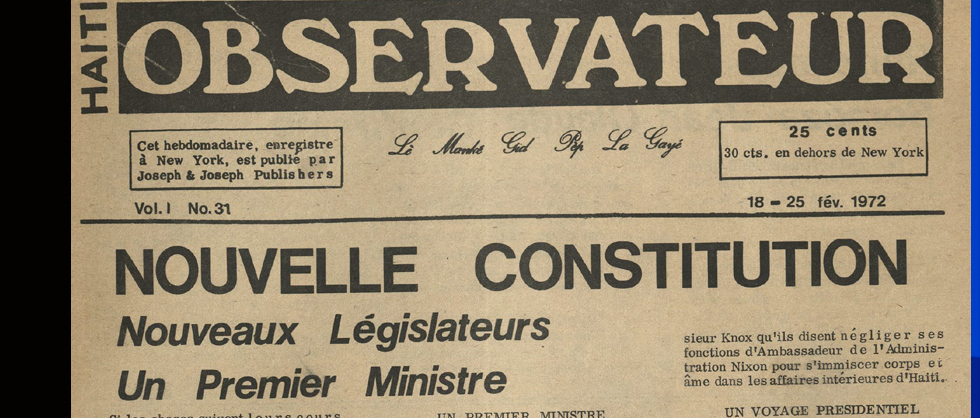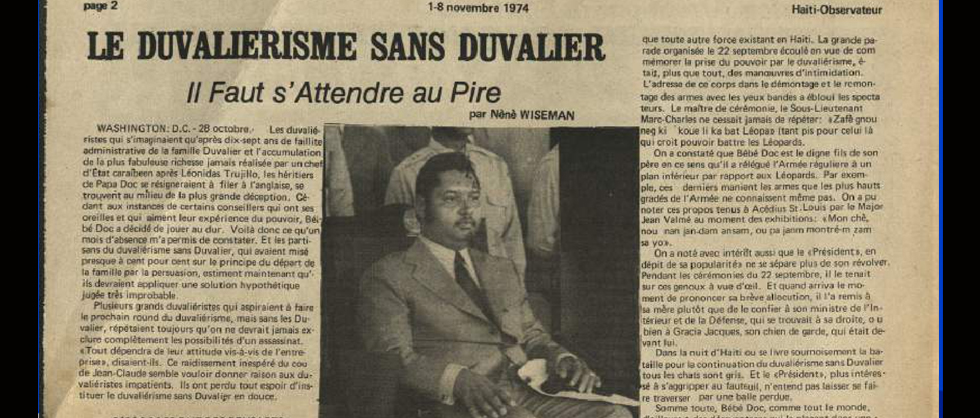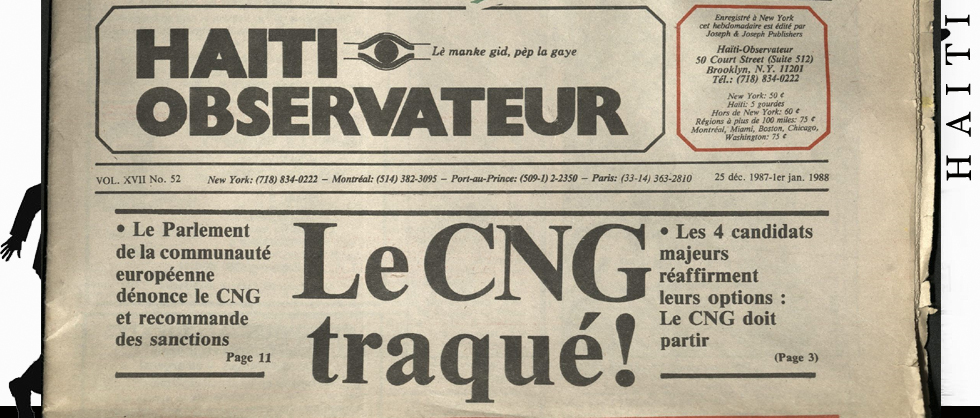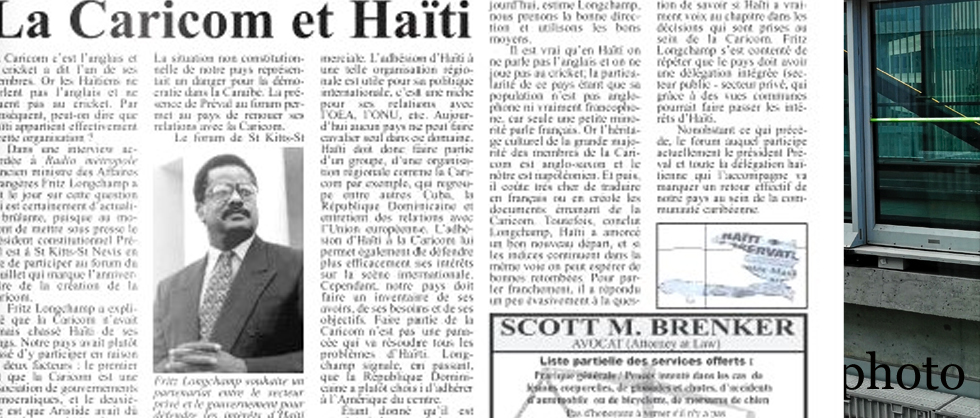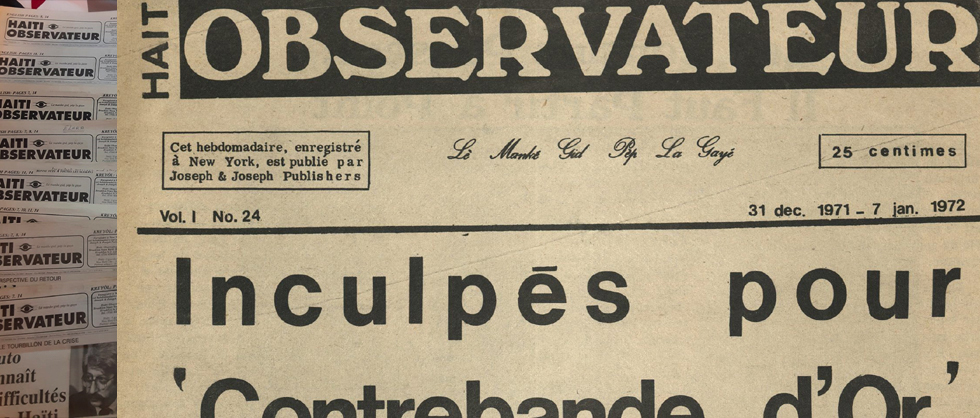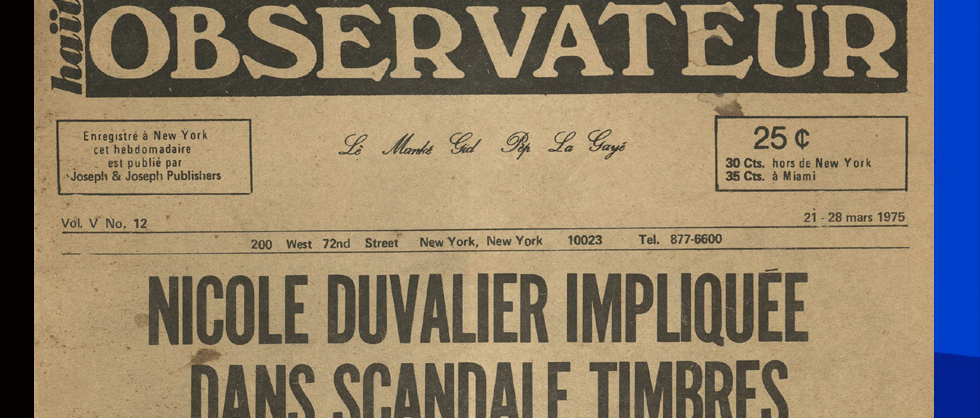
ÉDITORIAL
Every newcomer to the National Palace raises the hope that changes are in the offing. Some expect them in their lives, others in their fortune, in get-rich-quickly schemes. As for the masses, traditionally left behind, they hang onto the promises of better days conveyed in the speeches of the candidate of their choice. Nothing has differed with the arrival of Jovenel Moïse, who apparently succeeded in bringing thousands of voters, if not hundreds of thousands of citizens, in his camp. They believed in his promises of providing tens of thousands of jobs. Also, they anxiously await a recovery of the economy, if not fully but of various decaying sectors. Better still, the new president, indicted in a case of money laundering, even announced revamping the justice system.
Notwithstanding the skepticism with which Mr. Moïse’s electoral promises have been received by many, there are credulous citizens who firmly believe that this new government will surely change their lives. Thus, some are preparing to reap the fruits of their recent militancy. Thousands of others are devising all sorts of schemes to the detriment of public funds. Yet, many more are salivating about collecting bribes from dishonest transactions within the General Directorates. Seeing the list of Ministers presented by new Prime Minister Jack Guy Lafontant, it‘s clear that Michel Martelly participated in the creation of the new government. Many of the men and women called upon to join the “bald-headed” team led by Jovenel Moïse were part of the entourage, even close collaborators of the Compas singer turned conniving president.
Noticeably absent at the level of Cabinet Ministers are those who served as such in the governments led by Laurent Salvador Lamothe and Evans “K-Plim” Paul. But acting as her husband‘s alter ego, Sophia Martelley made several high level appointments of individuals un- known to the public. The former presidential family is also well represented at the level of Secretaries of State,* as well as among General Directors and special advisers to the President. This is intentional, as a camouflage of Michel Martelly’s influence on Jovenel Moïse and his government. For the way the system works, mainly the Secretaries of State and the General Directors engineer the important initiatives at the Ministerial Cabinet, while Ministerial decisions are steered by the Presidency under the influence of special advisers.
Obviously, no changes are to be expected in the management of major issues that tarnished the Martelly-Lamothe and Martelly-Paul governments. Don’t expect any light to be thrown on cases like the PetroCaribe Fund and various scandals, especially the surreptitiously awarded contracts which were not executed after the funds for their financing had been disbursed.
According to observers close to the negotiations which took place between the Presidency and Parliament regarding the choice of the Cabinet members, the former presidential family endeavored to pick many strategic Ministries. These included
Justice and Public Safety, Interior and Local Government, Women’s Issues and Rights, and Youth, Sport and Civic Action. By controlling these Ministries, Michel Martelly is reassured that justice will not revisit the PetroCaribe file, nor that of embezzlement of public funds carried out at the Ministry of the Interior and Territorial Communities. Forget the lawsuit against Olivier Martelly, the eldest son of the presidential couple, who squandered millions of dollars through his projects of building sports stadiums for youth via the Sports Ministry.
To the extent that the criminal charges leveled against Michel Mar- telly, the former First Family, their allies and close collaborators fall un- der the purview of the Minister of Justice and Public Security, Heidi Fortuné’s presence in the MoïseLafontant Government raises questions. One wonders what on earth explains the appointment of Mr. Fortuné in the sensitive post of Justice! What affinities exist between him and the new power ? Based on his previous pronouncements regarding the Haitian judicial system, Mr. Fortuné would appear to be completely at the opposite end of Jovenel Moïse and his close collaborators.
Indeed, Heidi Fortuné, formerly an investigative judge in Cap-Haïtien, had denounced the venal character of Haitian justice. Speaking with full knowledge of the facts, he railed against judges who rendered decisions based on offers of the highest bidder. In texts he regularly published on his blog, he did not spare his dishonest colleagues. In one of his articles in the Haïti-Observateur last year, he wrote : “With their qualities and their sins, the Police do what they can to carry out their task of protecting the citizens. However, between the rich and the poor, between the strong and the weak, between honor and money …, corrupt judges choose to sacrifice public peace.”
Further in the same text entitled “When justice creates insecurity,“ investigative Judge Fortuné emphasized: “Corruption alters not only the institution itself, which becomes the object of unwanted publicity, but also attacks the personality of its author, making him lose sight of the essential good conduct of the magistrate.“
Although Heidi Fortuné has been silent for some time, his view of Haitian justice expressed in opinions published in his blog leave no doubt about his take on the Haitian judicial system. He wrote bluntly : “Let’s call a cat by its name. Currently, the functioning of our judicial system jeopardizes the security of the citizens because the bandit and the corrupt judge definitely exercise the same profession. And any policy to combat delinquency will be doomed to failure with these elements in judicial hats that promote impunity and disinterest in the victims. Some magistrates have their hands dirty right up to the elbows … for having plunged them into shit and blood. Once again, we alert the members of the Supreme Council of the Judiciary (French acronym CSPJ) on the true nature of the Judiciary, and the urgency to react to the immense danger that is becoming more and more precise.
‘’ In light of these facts, it could be said that an investigative judge of the caliber of Heidi Fortuné has no place in the government of Jovenel Moïse, who is under a cloud of money laundering, with several of his close collaborators having been or are currently in conflict with the law. As Minister of Justice, how will Mr. Fortuné react if investigative Judge Brédy Fabien decides to whitewash the President of the Republic of all suspicion in the money laundering case revealed by UCREF, the government’s watchdog unit ? Obviously, the ball is in the camp of Heidi Fortuné.
*Secretaries of State are equivalent to Under Secretaries of State in the U.S. system.
le contenu intégral de la version PDF de l’édition se trouve en page d’archives et à l’adresse : http://haiti-observateur.ca/wp-content/uploads/2016/12/HO29Mars2017-1.pdf


